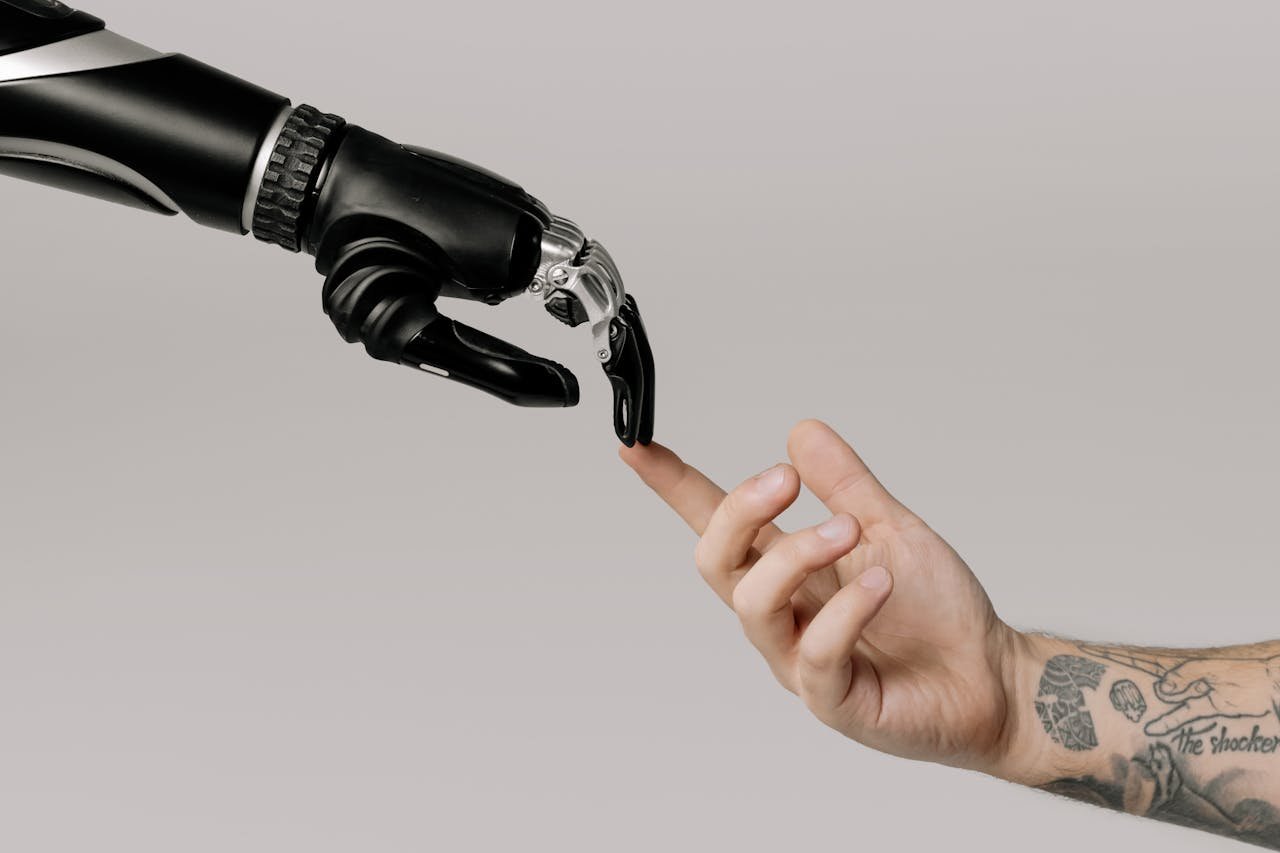Artificial Intelligence (AI) is no longer a futuristic concept confined to science fiction. It’s here, and it’s making a significant impact across various sectors, with AI in healthcare being one of the most transformative. From enhancing diagnostics to personalizing treatment plans, AI is revolutionizing the way we approach health and medicine. Here’s a closer look at how AI in healthcare is reshaping the landscape.
1. Enhanced Diagnostics with AI in healthcare
One of the most promising applications of AI in healthcare is in diagnostics. AI algorithms can analyze medical images with incredible accuracy, often outperforming human radiologists. For instance, AI-powered tools are being used to detect early signs of diseases such as cancer, cardiovascular diseases, and neurological disorders. By rapidly analyzing vast amounts of data, these tools can identify patterns and anomalies that might be missed by the human eye.
AI-driven diagnostic tools also streamline the workflow in medical facilities, allowing for quicker and more accurate diagnoses, which is crucial for early intervention and improved patient outcomes.
2. Personalized Treatment Plans
AI in healthcare enables the creation of highly personalized treatment plans by analyzing large datasets. By considering a patient’s genetic information, lifestyle, and other factors, AI can recommend the most effective treatment options. This approach, known as precision medicine, ensures that patients receive treatments tailored to their unique needs, increasing the likelihood of successful outcomes.
Moreover, AI can continuously learn and adapt, improving its recommendations over time as it processes more data and outcomes, thereby enhancing the overall quality of care.
3. Predictive Analytics powered by AI
Predictive analytics powered by AI in healthcare is another groundbreaking advancement. By analyzing historical data and identifying trends, AI can predict potential health issues before they become critical. This proactive approach can help in managing chronic diseases, preventing hospital readmissions, and reducing healthcare costs.
For example, AI algorithms can predict which patients are at higher risk for complications post-surgery, enabling healthcare providers to take preventative measures. This not only improves patient outcomes but also optimizes resource allocation within healthcare facilities.
4. Administrative Efficiency
AI in healthcare is also streamlining administrative processes, reducing the burden on medical staff and allowing them to focus more on patient care. AI-powered systems can handle tasks such as scheduling appointments, managing patient records, and processing insurance claims with greater efficiency and accuracy.
Natural Language Processing (NLP) is another AI application that’s transforming administrative tasks. By automating the documentation process, NLP reduces the time clinicians spend on paperwork, thereby increasing their availability for direct patient care.
5. Drug Discovery and Development
The drug discovery process, traditionally a lengthy and costly endeavor, is being accelerated by AI in healthcare. AI can analyze biological data to identify potential drug candidates much faster than traditional methods. It can also predict how different drugs will interact with each other and with the human body, reducing the risk of adverse effects.
This accelerated process not only brings new drugs to market faster but also lowers the costs associated with drug development, making treatments more accessible to patients worldwide.
6. Telemedicine and Remote Monitoring
AI in healthcare is enhancing telemedicine by providing tools that can diagnose and monitor patients remotely. Wearable devices and mobile apps can collect and analyze health data in real-time, allowing for continuous monitoring and early detection of potential issues. This is particularly beneficial for patients with chronic conditions who require constant monitoring but prefer to stay at home.
Telemedicine platforms equipped with AI can offer virtual consultations, reducing the need for in-person visits and expanding access to healthcare, especially in remote or underserved areas.
Conclusion
AI in healthcare is undoubtedly transforming the industry, offering unprecedented opportunities to enhance patient care, improve outcomes, and reduce costs. As AI continues to evolve, its integration into healthcare will likely deepen, ushering in a new era of medical innovation and efficiency. Embracing these advancements will be crucial for healthcare providers aiming to deliver the best possible care in an increasingly complex world.
